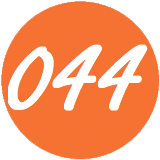
And the time came for social and free information
With the internet era, effortless and immediate information access, particularly on social media, brings a gigantic paradox: too much information but too little genuine understanding. How easily the answers can be searched for on the internet, with or without much effort or actual hard thinking, deducts from our ability to have genuine understanding of such complex subjects. For our intellectual and cultural development, a firm determination towards continuous reading and deep research is necessary.
The social media, as powerful channels of information transmission themselves, have transformed our modes of learning due to their immediacy. Immediacy is achieved at the expense of quality and authenticity of content. Even as they assure democratic platforms, they become breeding grounds for unsubstantiated news, personal bias, and even control with ease. Constant exposure to an excess of material, most of which is superficial or misleading, requires more ability to sort good information from trash. Putting hurried consumption before careful screening always sacrifices informational quality.
Achieving Intellectual Maturity and Discipline
It requires maturity of mind to navigate this sea of information. It's not access to information so much as it is depth of finding and knowledge. Everyone must cultivate critical thinking in order not to be swayed by selective or slanted accounts. Maturity of mind is being aware of digital tools, observing the psychological tides of information running, and most importantly, pausing for a moment before acting on any information to be the final word.
The allure of easy answers and the need to be "up to date" prompts individuals to skim valuable learning in favor of bite-sized material devoured on the move. This instigates superficiality that comes between authentic intellectual exchange. Whilst professionals spend decades mastering their art, true understanding cannot be achieved with the fleeting nature of online consumption. The majority, however, blindly accept what they are taught online without checking or cross-referencing.
Self-discipline is the hallmark of our information interaction. On the Internet, it transcends information gathering to involve orderly ordering, screening, and processing. The amount of information available does not provide room for indiscriminate use. However many years a scholar invests, we are compelled to work hard consciously towards actual understanding. Rapid content "consumption" without interactive engagement leads to misinterpretation and erroneous ideas. Intellectual maturity therefore requires us to transcend shallow responses, practicing depth of thinking.
And finally, shallowness regarding information erodes thought and power sensationalized polarization. Without the critical eye, we risk being trapped in "information bubbles," and only hearing agreeing opinion and discrediting disagreeing opinion. This annihilates constructive debate and holds back intellectual progress. In not cultivating the skill of being able to judge good information, we risk being in a world where content is bias-fit, not quality.
The Disorienting Effect of SEO and Content Plenitude
Search Engine Optimization (SEO), though critical to visibility, has inadvertently become the greatest cause of information distortion. It has made online publishing an algorithm game in which "optimized" content, possibly inaccurate or of no actual value, spills over search results. It invites keyword-stuffed content often lacking content or quality. Ranking-specific material, typically authored by SEO planners and not experts, can propagate false information, especially in serious fields like medicine. Such rapid dissemination of false information creates illusions of certainties with SEO leading uninreliable information.
We also have the additional flood of plagiarized, poorly translated, or re-purposed work that reflects no glimmer of true understanding. Gladness of machine translation and absence of quality checks lead to a flood of what is touted to be original work but is less than perfect. Such a "saturated market" denies users access to valuable material but instead forces them to sift through low-value material presented as authoritative. If search engines are rewarded for such practices to keep on going, the overall level of information on the internet will take a drastic backlash.
This distortion erodes trust in sources of authority. As non-specialist websites achieve success due to SEO, true authorities are eclipsed. The public, unaware in most cases, might mix up a respectable but low-quality website that appears high and a true scholar's source. This paradox ensures salience on accessible but unrespectable information and renders qualified information invisible. Lacking critical user regulation, education with lacking attention to authentic sources of knowledge disqualifies information integrity.
SEO's reach also applies to content creation viability, forcing producers to choose between traffic and intellectual honesty. The algorithmic squeeze to conform warps content creation into viral, index-friendly content that does not cater to the actual demand for robust knowledge. The moral problem is finding a balance between SEO requirements and the commitment to produce original, well-researched content. If SEO awareness is always given a higher priority than information quality, responsibility is lost on producers, opting instead for "visibility" rather than "veracity," eventually killing user trust.
Handling Misinformation: A Call for Digital Literacy
A harsh example of the spread of misinformation is a simple web error, like a totally fabricated Greek word definition in Google. This shows how easy it is for misinformation, whether malicious or not, to be spread online. The velocity of the transmission of news by digital media outpaces our capability to confirm it numerous times over. The majority of people don't even realize they are being exposed to misinformation. The collapse of universal digital literacy, which allows people to know where reliable sources are, allows false information to become accepted fact, as long as it is sensationalized or supportive of bias. Psychology also plays a big role: humans are prone to believe information that is supportive of what they believe.
Aiding in avoiding online error and misinformation efficiently, digital literacy is imperative to be developed. Users must be able to recognize online risk and understand how to identify good sources, practicing great critical reasoning. Platforms also require more robust policies and be made accountable for preventing malicious spread of content. Online misinformation is a systemic problem and needs multi-stakeholder collaboration from all the involved parties: governments, platforms, and users. It is through heightened awareness and combined efforts that we can minimize errors and deceptions and thereby ensure the integrity of electronic data.
The instant availability of online data, unfiltered for authenticity or provenance, is genuinely epic risks. Experts no longer must "teach"; cut-and-paste can be "reality" for millions if a site is well-positioned. This is a explicit antithesis with what was once when publication was a matter of decades of thoughtful scholarship. Self-restraint, now under-estimated, was the foundation of intellectual stature. Immediacy, reactivity, flash, and superficiality are values today.
Technology: Master or Tool?
Technology seems to infuse every area of life these days, promising boundless utility but challenging our relationship with it. It began as a problem-solving technology and capacity better, such as the first flint tools or contemporary AI.
But our growing dependence has had one consequence: technology is more and more seen as a guide, even a master. Its rapid incorporation into everyday life influences customs, so that some see it as self-sustaining. Technology controls our choices, productivity, and minds more than it is in their employ.
Social media are the cases in point: content is algorithmically governed, shaping opinion. We respond reflexively, losing track of time and thought. Automation has its role, but stands on the brink of loss of control as responsibility is delegated to systems operating without close context, at risk of limiting creativity.
Technology influences social relations as well. Networks, intended to unite, are places of mediated identities. The pressure of being constantly connected generates competition, comparing worthiness by virtual standards. It isolates us, deconstructing actual connection, as technology comes between us.
The issue is how to balance the positives of technology with risk of autonomy. Technology will not replace mankind; it will serve to augment our labor. It has to be a tool enriching our capacity to think, to act, and to communicate, and not a master. If we do not consciously use it, we will become slaves to a system that we created for making life easier. Our job is to make technology a tool and not a goal.
In brief, our richer world provides the basic difference between knowing and understanding. To become truly grown up, as a country and human beings, we need to give serious, steady time to learning. Then, and only then, can we use technology to improve our lives and not be slaves to it, without sacrificing our ability to reason, reflect, and live-aware.












